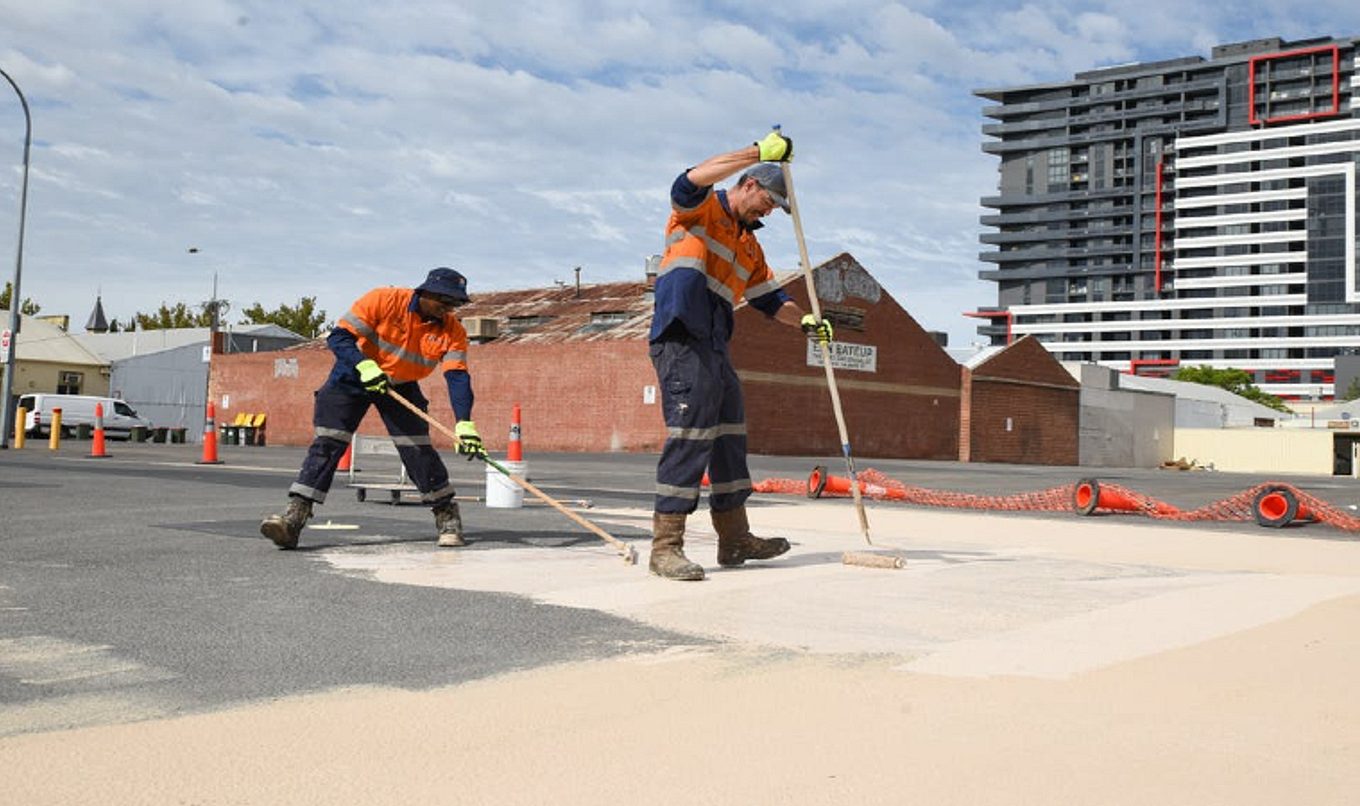Adelaide trial finds roads can be cooler
An Adelaide trial of road surface products to test their effect on temperature has found they can keep roads cooler during the day and night.

The Cool Road Adelaide project tested three heat-reflective treatments last summer, with one showing a reduced surface temperature of 8.65C during the day and 4.2C at night.
All three products showed a reduced surface temperature relative to the control asphalt road.
In areas where planting more trees to provide a canopy is not feasible, such as on major roads, these treatments can help reduce the urban heat island effect.
Urban areas often feel hotter on summer days because roads, footpaths and buildings absorb more heat from the sun. Cooling them down makes areas more attractive to people using them and can help boost local economies by increasing visitation.
The project tested the three products on sections of Bowen Street West in the city. It was delivered by Climate-KIC Australia in partnership with the City of Adelaide and the Department for Environment and Water, and supported by Fulton Hogan.
It is the first trial in Australia to capture both day and night-time surface temperature data, and provides evidence that cool road sealants can help reduce road surface temperature during the day and into the evening.
Combined with the cooling benefits of street trees, targeted irrigation and other cooling strategies, cooler roads can reduce heat generally, and particularly in the most extreme urban temperatures.
The cooling demonstrated by each product was 8.65C (CoolSeal), 4.95C (JetBloc) and 2.6C (JetCool) during the day and 4.2C (CoolSeal), 2.9C (JetBloc) and 1.5C (JetCool) during the night.
New, darker traditional asphalt road nearby was found to be hotter during the day than the cool road sealants, but also 6C hotter than the control asphalt that was more aged.
The report can be downloaded from the Climate KIC website.

